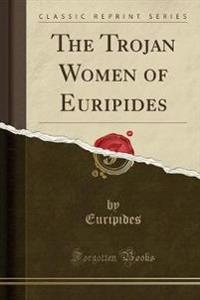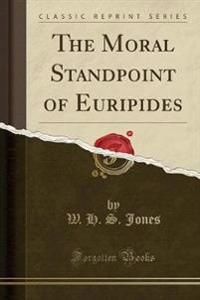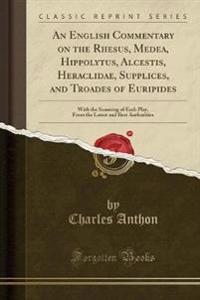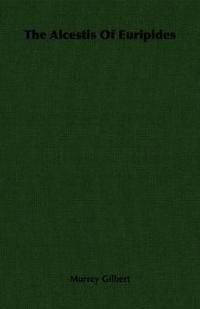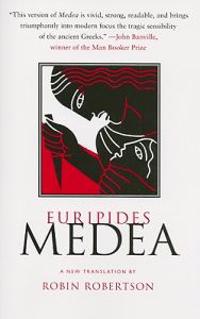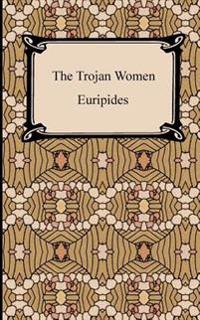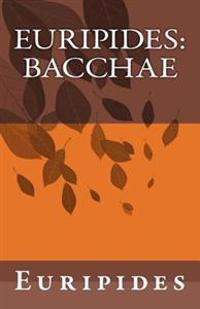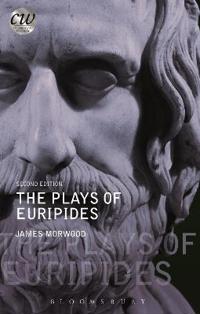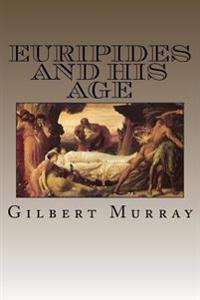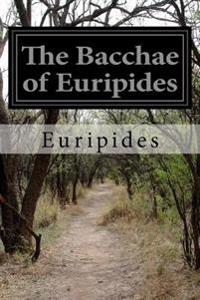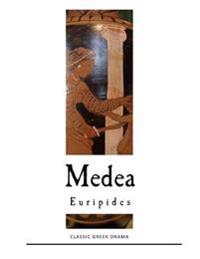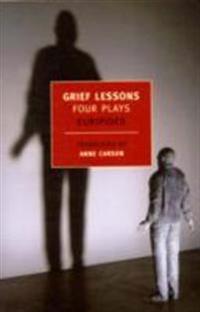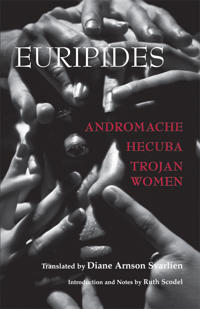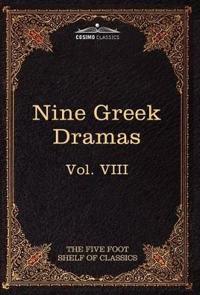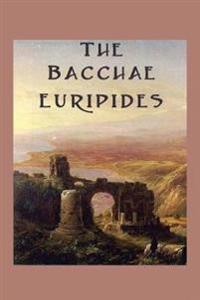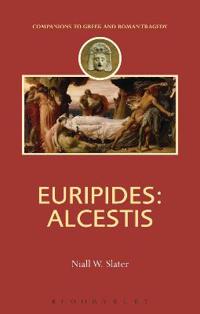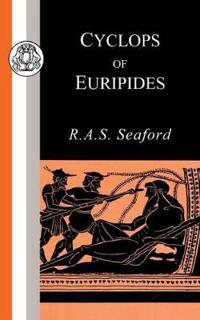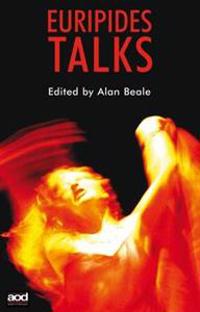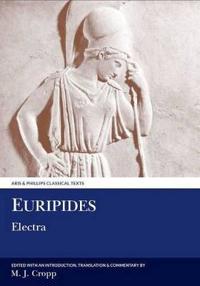An English Commentary on the Rhesus, Medea, Hippolytus, Alcestis, Heraclidae, Supplices, and Troades of Euripides (häftad)
ISBN: 9781330900567 - UTGIVEN: 2015-09Dionysus Resurrected: Performances of Euripides' The Bacchae in a Globalizi (Häftad)
avErika Fischer-lichte
ISBN: 9781405175784 - UTGIVEN: 2014-01-31Euripides Our Contemporary (Pocket)
avJ. Michael Walton
ISBN: 9781408112045 - UTGIVEN: 2009-08-20Euripides Our Contemporary is a major assessment and study of all of Euripides' plays organised by theme. For students, teachers and practitioners it's a perfect companion to Euripides' work and will lead to a deeper appreciation of the timeless appeal and the connections between his plays.[...]
Medea (Häftad)
avEuripides
ISBN: 9781416592259 - UTGIVEN: 200910The old songs will have to change. No more hymns to our faithlessness and deceit. Apollo, god of song, lord of the lyre, never passed on the flame of poetry to us. But if we had that voice, what songs we'd sing of men's failings, and their blame. History is made by women, just as much as men. [...]
Euripides
ISBN: 9781472569066 - UTGIVEN: 2015-02Chosen as one of the ten canonical plays by Euripides during the Hellenistic period in Greece, Hecuba was popular throughout Antiquity. The play also became part of the so-called 'Byzantine triad' of three plays of Euripides (along with Phoenician Women and Orestes) selected for study in school cur[...]
The Plays of Euripides
ISBN: 9781474233590 - UTGIVEN: 2016-10Over the past decades there has been something of a revolution in the way we view classical drama generally and Euripides in particular. This book, updated in a second edition, reflects that revolution and aims to show how Euripides was continually reinventing himself. A truly Protean figure, he [...]
Andromache, Hecuba, Trojan Women (Pocket)
avEuripides, Diane Arnson (TRN) Svarlien, Ruth (INT) Scodel
ISBN: 9781603847353 - UTGIVEN: 2012-03Diane Arnson Svarlien's translation of Euripides' Andromache , Hecuba , and Trojan Women exhibits the same scholarly and poetic standards that have won praise for her Alcestis , Medea , Hippolytus . Ruth Scodel's Introduction examines the cultural and political context in which Euripides wrot[...]
Nine Greek Dramas by Aeschylus, Sophocles, Euripides, and Aristophanes
ISBN: 9781616400484 - UTGIVEN: 2010-02Euripides: Alcestis (häftad)
ISBN: 9781780934730 - UTGIVEN: 2013-09In the Alcestis, the title character sacrifices her own life to save that of her husband, Admetus, when he is presented with the opportunity to have someone die in his place. Alcestis compresses within itself both tragedy and its apparent reversal, staging in the process fascinating questions about[...]
Euripides
ISBN: 9781853995231 - UTGIVEN: 2003-06Euripides' "Cyclops" is the only complete surviving example of a Satyric drama. The Satyr-play drama has a nature entirely of its own, neither tragic nor comic, but something between the two. Its most distinctive feature is its chorus of Satyrs, strange creatures, half goat and half men, the attenda[...]
Cyclops (Häftad)
avEuripides
ISBN: 9781853995668 - UTGIVEN: 199808This is an introduction to Euripides' "Cyclops", the only example of satyric drama to have survived complete into the modern world. The work gives an historical and analytical account of the genre, tracing its origins, development and decine. It examines the place of satyrs in the religious imaginat[...]
Euripides Alcestis (Pocket)
avA. Dale
ISBN: 9781853995972 - UTGIVEN: 2003-06This edition provides an introduction and commentary (including metrical analysis) to this intriguing 'pro-satyr' play, based on a Thessalian legend.[...]
Euripides Talks (Pocket)
avAlan (EDT) Beale
ISBN: 9781853997129 - UTGIVEN: 2008-09Actors of Dionysus (aod), formed in 1993 to tour Classical drama in translation and have established themselves as the leading exponents of Greek tragedy in contemporary theatre and education. With many national and international touring productions, two DVDs, a Penguin audio book of "Medea" and a w[...]
Medea (Pocket)
avEuripides, Alistar (TRN) Elliott, Andrezej (ILT) Klimowski
ISBN: 9781870259361 - UTGIVEN: 1997-12" 'What I intend to do is wrong, but the rage of my heart is stronger than my reason - that is the cause of all men's foulest crimes.' Medea is the archetypal wronged woman driven to despair. When uncontrollable anger is unleashed, the obsessed mind's capacity for revenge knows no bounds. Introd[...]

